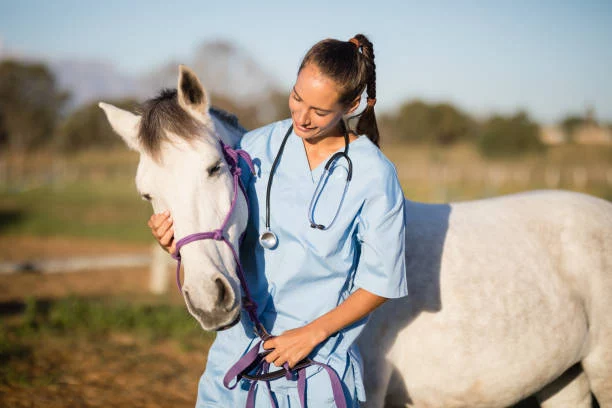Understanding and earning a horse’s trust is more than just a training technique; it’s a shared language that blends intuition, empathy, and care. Horses, as prey animals, are acutely aware of body language, energy, and intent. They respond to the world in ways that often go unnoticed by people who rely mostly on verbal communication. Holistic horse care, such as utilizing Sumchi magnetic therapy tools, invites us to meet horses on their own terms, supporting their physical and emotional well-being while fostering a deeper, more meaningful bond. This approach is not just about feeding them well or avoiding chemicals; it’s about listening, observing, and acting in ways that build confidence and mutual respect.
What Is Holistic Horse Care?
Holistic horse care is a philosophy that considers the entire well-being of the horse, encompassing body, mind, and spirit. It moves beyond the traditional checklist of feed, shelter, and exercise to include areas like emotional health, natural herd behaviors, energy balance, and the environment in which a horse lives. It often incorporates practices such as natural hoof care, equine massage, magnetic therapy for horses, herbal supplements, chiropractic adjustments, acupuncture, and mindful groundwork.
What sets holistic care apart is its emphasis on understanding the horse as an individual. No two horses have the same needs or personalities, and holistic caretakers are attuned to subtle signals that indicate discomfort, anxiety, or imbalance. Instead of suppressing symptoms, holistic methods aim to discover root causes, whether they stem from a poor diet, inadequate social interaction, or even a rider’s emotional tension.
Building Trust Through Observation and Patience
The heart of the human-equine connection is trust, and holistic care provides numerous opportunities to foster it. Trust doesn’t come from dominating a horse or forcing obedience; it arises from consistent, calm interactions and mutual understanding. Holistic caretakers spend more time observing and less time controlling. They learn the horse’s preferences, triggers, and rhythms.
For example, a horse that is resistant under saddle may not be “naughty” but might be experiencing discomfort from a poorly fitting saddle, stress from isolation, or anxiety transferred from its handler. By paying attention to posture, gait, eye expression, and breathing, holistic horse experts often spot concerns before they escalate into injuries or behavioral problems. This attentive, respectful approach teaches horses that their needs matter, which fosters a sense of safety and partnership.
Physical Health as a Foundation for Emotional Connection
When horses feel good physically, they’re more likely to be emotionally available and engaged with humans. Holistic care ensures that a horse’s body functions optimally, starting with proper nutrition. Diets tailored to the horse’s specific metabolism, age, and activity level help prevent inflammatory issues and promote stable energy. Digestive health, often overlooked, is a cornerstone of wellness. Using probiotics, low-starch feeds, Sumchi magnetic therapy tools, and natural grazing cycles can significantly impact mood and performance.
Natural hoof care is another vital component. Hooves are a reflection of internal health, and imbalances can lead to pain, tension, and resistance. A horse with sore feet may shy away from human interaction or exhibit “bad behavior” that is a call for help. When the body is balanced and pain-free, horses can focus more on communication and connection rather than self-protection.
Emotional Safety Through Routine and Respect
Emotional safety is just as critical as physical safety for horses. They thrive on predictability, gentle leadership, and a calm environment. Holistic care fosters emotional security by creating routines that align with natural behaviors. Daily turnout with other horses, varied movement, and minimal use of harsh restraints help keep horses mentally stable.
Trust deepens when horses are treated as sentient beings rather than tools for sport or pleasure. Even small acts, such as waiting for a horse to offer a hoof instead of grabbing it, or allowing a curious sniff before bridling, send powerful signals of respect. These moments may seem minor, but they add up to a horse that is more willing, relaxed, and open to human interaction.
The Horse as a Mirror
One of the most profound aspects of holistic horse care is the way it invites humans to examine their own inner state. Horses are deeply sensitive to energy and intention. A person who is anxious, impatient, or distracted often finds their horse mirroring those emotions. This biofeedback loop encourages caretakers to be present, calm, and authentic.
Practices such as mindfulness, breathwork, and even equine-assisted therapy have gained popularity because they tap into this unique dynamic. In this context, the horse becomes a partner in personal growth, not just an animal to manage. Trust becomes a two-way street; humans learn to trust the horse’s feedback, and horses learn to trust the human’s consistency and compassion.
Conclusion: A Deeper Bond Beyond the Saddle
Holistic horse care isn’t a checklist, it’s a mindset. It calls for curiosity, humility, and a willingness to slow down and listen. By tending to every aspect of a horse’s being, we open doors to connection that go far beyond the arena. Trust, once earned through thoughtful care and genuine respect, becomes the language through which horses and humans truly understand each other. In this deeper bond lies the essence of what draws so many people to horses in the first place: the chance to connect with another being in a way that is honest, healing, and profoundly mutual.

Lexy Summer is a talented writer with a deep passion for the art of language and storytelling. With a background in editing and content creation, Lexy has honed her skills in crafting clear, engaging, and grammatically flawless writing.



